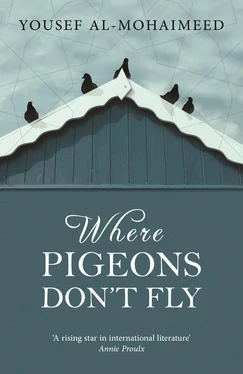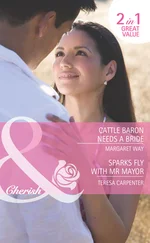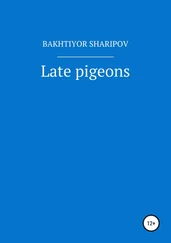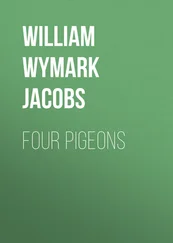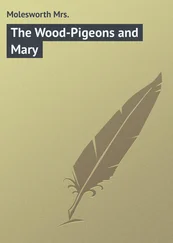The phone rang in Fahd’s pocket. He looked at the number and saw Tarfah’s name blinking insistently. He refused the call and noticed an unread message from Saeed: Fahd, don’t surrender your mothers’ rights to these dogs!
He turned and saw Saeed sitting on the white plastic chair, one leg crossed over the other and jiggling to a jittery, remorseless rhythm.
Escaping the suffocating atmosphere, Fahd went outside to the ambulances’ covered parking lot to light a cigarette between two of the vehicles. He blew out smoke and wept bitterly. A gentle hand fell on his shoulder. It was Saeed, comforting him and urging him on.
— 52 —
FAHD’S EYES WELLED. saeed held his arm and tried to comfort him as he burst into tears and rested his head against the driver’s wing mirror on the side of the ambulance. He wept aloud: he needed to be outside in the fresh air, to light the tip of a cigarette, to receive comfort from someone other than the killers: the Egyptian sheikh, his uncle and his cousin. To not only lose his mother, but to lose her in such awful circumstances … His father had never hit her, yet some stranger had flogged her to death with his son’s assistance. What gall his uncle had! For that matter, what gall his sister had to snatch the broom from behind the kitchen door and hand it to Abu Ayoub as he galloped up in a fright at the voices of infidel jinn. Has your little heart died, Lulua? Heartbroken, anguished, sad and tearful, Fahd muttered, ‘The best way to honour the dead is to bury them, and I don’t believe a man can honour anyone in this world more than his mother!’
Back inside, Abu Ayoub spoke at length, standing with Ibrahim, Fahd and Yasser and directing most of his words at Fahd as he rolled the toothstick in his mouth and clicked prayer beads over his thumb with a rapid mechanical motion.
‘“When it is their time to die they shall not delay the hour nor shall they hasten it,”’ he said. ‘Her day has come, may God have mercy on her, and her hour has struck. It falls to us to keep faith in fate and divine decree. Brothers, everything we are doing now is the work of Satan and will not restore the dead to life.’
‘But it will restore her rights!’ Fahd broke in. ‘Otherwise, we might as well be living in the jungle! My mother was murdered, never mind if she was ill. Even if the doctors said she was going to die in a few months, or a year, no one knows how long she would have lived.’
‘I know,’ said Abu Ayoub, his eyes fixed on Saeed who was standing on the other side of the glass. ‘But the sheikh means well and follows the sunna , and he who forgives and makes peace will be rewarded by God. That’s one point, the other point you seem to be forgetting, Fahd, is that transferring the corpse of your mother, God have mercy on her, to the dissection table and the tender mercies of the surgeons will cause great pain both to her and to us. Do you not mind — can you even imagine — your mother being subjected to the surgeon’s scalpels after her death?’
‘No!’ said Yasser. ‘We do mind!’
‘Don’t talk of what doesn’t concern you!’ Fahd said.
Abu Ayoub grabbed Fahd’s hand and led him out of the ward. ‘But it does concern me, Fahd. I was her husband. Then there’s the fact that we’re in mourning at the moment. And don’t imagine that anything will happen to us: each one of us gave her the traditional cures with the best of intentions. Even your sister played her part. In a case such as this sacrificing an animal or a couple of months’ fasting should be enough if our approach was in error.’
Yasser, who had caught up with them, now interrupted. ‘We weren’t wrong. The sheikh is well-known; his books are in the Rushd bookshop!’
Abu Ayoub went on as if he had heard nothing. ‘To be brief, what we need to do now is withdraw our case against the Egyptian, get that withdrawal endorsed in court and try and prevent the body being referred for autopsy. We won’t sleep tonight until she’s been put in the refrigerator and tomorrow we’ll wash the body and say the afternoon prayer over her grave.’
It was a day as turbulent as a dream, streaking by before Fahd’s eyes.
Till now, his days had been spent between the reek of oil paint, the rough, pimpled canvas, brushes of all shapes and sizes, memories of college, the corridors of King Saud University, the central library, Granada Mall, Le Mall, his friend Saeed and his girlfriends Noha, Thuraya and Tarfah. Days both uncomplicated and formulaic, sitting at Shalal Café on Dammam Road, or Tareeqati Café on Urouba Road. He loved Fairouz and Khaled Abdel Rahman, loved dancing and painting, went to art exhibitions at Shadda Hall in Murraba and Sharqiya Hall north of Takhassusi Hospital. His jaunts with Saeed never went beyond Tahliya and Ulaya streets and for food he alternated between the Damascus Fateer House in Layla al-Akheliya Street and Zeit wa Zaatar in Tahliya: with the exception of McDonald’s, he disliked all fast-food restaurants.
True, before his uncle had taken over their home he had managed to establish some fleeting connections with people around him, like Abdel Razaq al-Hindi from the Sulaimaniya supermarket who had opened a deferred account in Fahd’s name and Abu Rayyan, owner of the Sufara bakery on Urouba Road, but the contact had always been swift and evanescent. Now, he had moved beyond his small and intimate world, as if dropped from a helicopter into the thickets of a dark and untamed jungle, forced for the first time to look at the dense foliage, to hear the calls of new and terrifying creatures, to confront reddened eyes aglow with treachery.
He was in a dream. One morning he would wake to find nothing left of it save dry leaves stirring in Zuhair Rustom Alley before a light September breeze. He would stand in the street, the budding yellow sun at his back already striking the soaring bridge by the vast Mamlaka Tower, stretch his arms wide and call, ‘God, what a beautiful morning!’ then go on his way, slowly dragging his tattered leather sandals whose metronomic slap on asphalt lacerated the morning’s stillness. He would be received by Sayyidat al-Ru’osa Street, parallel with Urouba Road, and head east, walking down from Ulaya’s old police station to stand sleepily before Fahih al-Tanawwur , the stocky torso of Abdel Moula the Afghan baker swaying as he lightly tapped the rounded baker’s peel against the oven wall and wiped sweat from his brow with the filthy towel that dangled from his right shoulder.
The hospital, the emergency ward, his mother’s death by torture, his fight with Abu Ayoub and Yasser, the conversation with the detective, all the talk of withdrawing his case and of judges, courts, refrigerators, washing corpses, the mosque and cemetery: none of this was routine or familiar to Fahd, but rather the occasion for consternation and fear, as novel and intimidating as exiting the gloom of a small flat in Maseef into a void both desolate and formless, oppressive and painful, that filled him with doubt and suspicion.
Chaste and meek, he had been addicted to the smell of oil paints, had loved flowers and music and art and a life as simple and untainted as the sun itself, and he had loved Tarfah, too. Now, he had taken the first step into a mysterious and unfamiliar world that held him up to judgment and conspired against him. He had been in the midst of a warm romantic scene, part of some endless film reel, that had suddenly cut to the thunder of hoof beats, brandished blades, gunfire and battle, heads and limbs flying to all quarters.
The detective had suggested that were they to withdraw their case the autopsy would be a superficial one: there would be no deep cuts into his mother’s body and it would take at most two hours. Abu Ayoub tried to get the whole matter of pathologists and autopsies dispensed with entirely ‘to save time’, but the detective refused, promising to hasten the process. He made a call and told them he had tried to get the doctor in Shamesi to come to them instead of taking the body to him, but had failed. Nevertheless, he assured them, he would make sure the business was wrapped up inside two hours. Smiling and unfailingly polite, the detective said his piece, took the interview file from the policeman and went on his way.
Читать дальше
